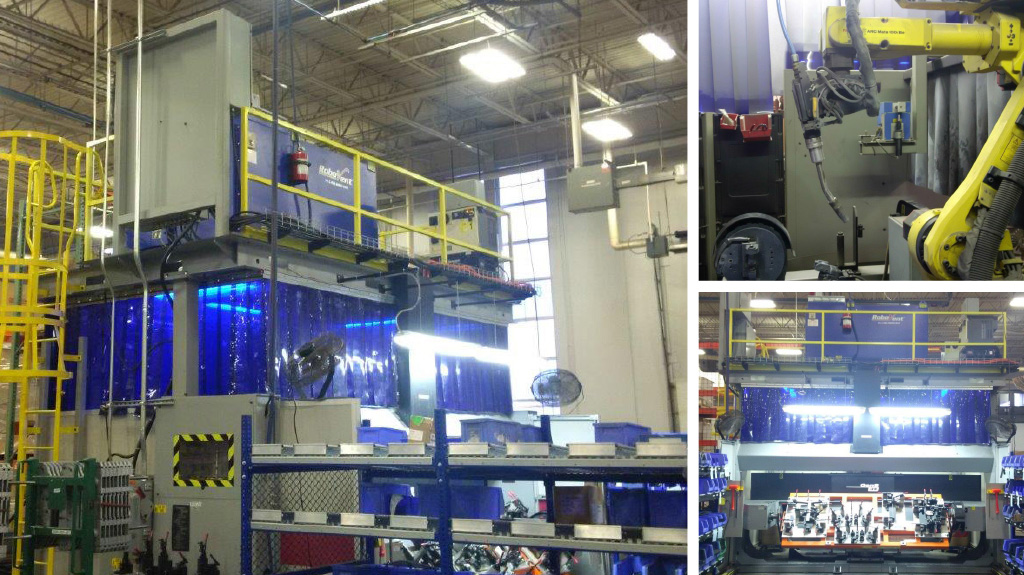Quality Matters at Stryker
May 31, 2016
Stryker has produced world-class medical equipment since the 1940s and today maintains a large manufacturing facility near the company’s original home in Kalamazoo, Michigan. Stryker’s focus on quality begins in its production process, and maintaining a clean factory is a high priority. The company has used RoboVent dust collectors for years and recently has become even more committed to them.
The Problem
Stryker’s facility houses entire production lines, from raw materials to finished hospital beds, stretchers and more. Punch presses, laser cutters and twenty robotic welding cells produce a lot of dust. As production has grown—including a move to a larger facility in recent years—Stryker’s dust and smoke challenges have grown as well.
Stryker has worked with a variety of dust collection equipment over the years. At times, they have had RoboVent units and other brands operating concurrently. As the facility grew, Stryker was faced with some hard choices about how to move forward.
The RoboVent Solution
Fortunately, operating multiple dust collectors allowed Stryker to make direct comparisons between them. The case for the RoboVent units got stronger and stronger over time. As Randy Blair, Chief Maintenance Technician, tells it, other dust collectors required more maintenance and fixes than the RoboVent units, sometimes on the order of more than twenty to one. Blair says the “challenges with other equipment” helped steer them toward RoboVent.
A proven record of reliability and efficiency was in RoboVent’s favor, Blair says. The units rarely had problems, unlike their competitors. Changing filters and doing regular maintenance were easier on the RoboVent units. “We get much more time between servicing,” Blair reports. This freed up staff and reduced costs. Over time, Stryker acquired one RoboVent unit after another.
The units continue to perform at a high level. Blair reports, “We collect more dust with the Plaser unit in a week than we did in a month with the competitor’s unit.”
The Results
Stryker’s experience with the RoboVent dust collectors won them over. Blair says, “We were able to convince engineering to use RoboVent.” In addition to improved air quality management, the facility saw decreased noise levels as well. This was a plus for workers’ health and comfort.
“The workmanship is so much better,” Blair says. He has already recommended RoboVent to others. Blair is quick to share benefits of the units with colleagues in the industry, including details about cost and performance. “It’s just better quality . . . and a lot more reliable,” concludes Blair.
